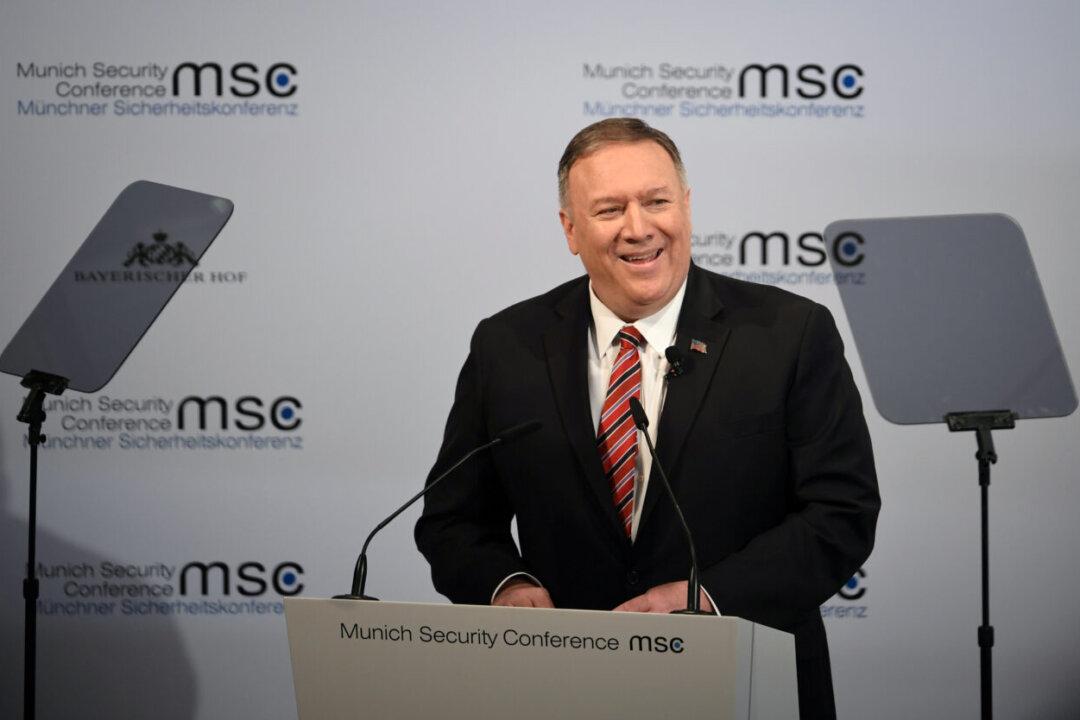U.S. Secretary of State Mike Pompeo defended the strength and sustainability of the Western world despite misgivings in Europe when speaking at the Munich Security Conference on Feb. 15.
More than 500 high-level decision-makers from all over the world convene annually at the Munich Security Conference in Munich, Germany, to discuss international security policies and address current security challenges. Among the attendees are heads of states, ministers, members of parliament, business leaders, scientists, and high-ranking members of civil society.





